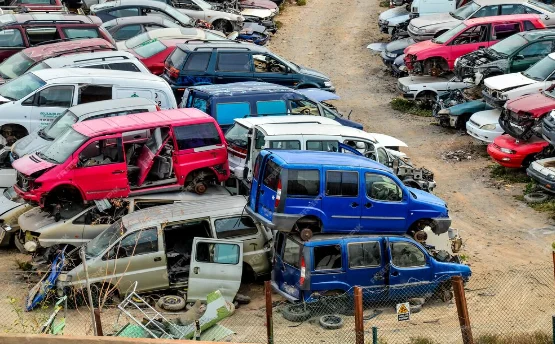Selling a car that no longer runs to a junkyard can be a practical solution, but it requires some preparation and understanding of the process. In this guide, we will take you through the steps involved in selling your car to a junkyard. From gathering the necessary documents to coordinating pickup or delivery, we’ll provide you with a comprehensive outline to ensure a smooth and successful transaction.
While selling to a junkyard may not yield the highest price compared to selling a working car, it offers convenience and eliminates the need for passing tests or inspections.
Gather the necessary documents
Before you can sell your car to a junkyard, you’ll need to ensure you have the proper documentation. The most crucial document is the vehicle’s title, which serves as proof of ownership. If you’ve misplaced your title, you can contact your state’s department of motor vehicles (DMV) to obtain a duplicate copy. It’s important to have the title in your possession before proceeding with the sale. Additionally, if there are any outstanding loans or liens on the car, you must pay them off to clear the vehicle for sale.
Research and contact multiple junkyards
Finding the right junkyard can significantly impact the price you receive for your car. Take the time to research and contact multiple junkyards in your area to compare offers. When reaching out to them, provide accurate information about your vehicle, including its make, model, and any existing damage. Keep in mind that junkyards typically offer higher prices for cars with minimal damage. By shopping around and obtaining multiple offers, you increase your chances of getting the best price for your vehicle.
Prepare the vehicle for sale
While the condition of the exterior doesn’t usually affect the price offered by a junkyard, it’s essential to remove any personal belongings from the car. Take the time to clean out the interior and ensure you haven’t left any valuables behind. Additionally, if your car has any aftermarket parts or custom rims, consider removing them. These items can be sold separately to potentially increase your overall profit. Remember to remove any personal items or accessories you wish to keep, such as keychains or bumper magnets, as they will be lost once the car is sold.
Coordinate pickup or delivery
Once you’ve chosen a junkyard and agreed on the sale price, you’ll need to coordinate the pickup or delivery of your vehicle. In most cases, junkyards will arrange for a tow truck to retrieve the car from your location. However, some junkyards may request that you deliver the vehicle to their premises. If the car is still drivable and insured, offering to deliver it yourself could potentially be used as a negotiation point to secure a higher sale price. Ensure that the junkyard has clear access to the vehicle for easy loading if they are sending a tow truck.
Report the sale to local authorities
Reporting the sale of your vehicle to the appropriate local authorities is essential to comply with state regulations. The requirements for reporting the sale vary by jurisdiction, so check with your state’s DMV or relevant authority for specific instructions. Reporting the sale not only ensures legal compliance but also protects you from potential liability if anything happens to the vehicle after it’s been sold. Be aware of any deadlines to avoid penalties or complications down the line.
Summary
Selling your car to a junkyard may not offer the highest price tag, but it can provide a convenient and stress-free solution for disposing of a non-functioning vehicle. By following the steps outlined in this guide, you can navigate the process with confidence and maximize the value of your car. Remember to gather the necessary documents, research multiple junkyards to find the best offer, prepare the car by removing personal belongings and aftermarket parts, coordinate pickup or delivery, and report the sale to local authorities as required. With careful preparation and attention to detail, selling your car to a junkyard can be a straightforward and rewarding experience.
FAQs
What if I don’t have the title for my car?
If you do not have the title for your car, selling it to a junkyard may still be possible, but options may be limited. Some junkyards accept vehicles without a title, provided you have other documentation proving ownership, such as registration and your driver’s license. However, it’s always best to contact the junkyard directly to understand their policy on this matter.
How do I determine the value of my car before selling it to a junkyard?
The value of a car sold to a junkyard is primarily based on its weight and the current scrap metal prices, rather than its operational condition. You can get a rough estimate by researching the going rate for scrap metal in your area and knowing the weight of your vehicle. However, specific parts of your car, like the catalytic converter, may add more value due to precious metals
What happens to my car after I sell it to a junkyard?
After purchasing your car, a junkyard typically dismantles it to sell usable parts. The remaining metal is sold as scrap. Some parts might be refurbished and resold, while others, like harmful fluids and materials, are disposed of according to environmental regulations.
Do I need to cancel my insurance immediately after selling my car to a junkyard?
Yes, you should inform your insurance provider like tutenagency, an exclusive agent with Allstate and cancel your policy as soon as the sale is complete and the vehicle is no longer in your possession. This will prevent you from incurring unnecessary charges.

